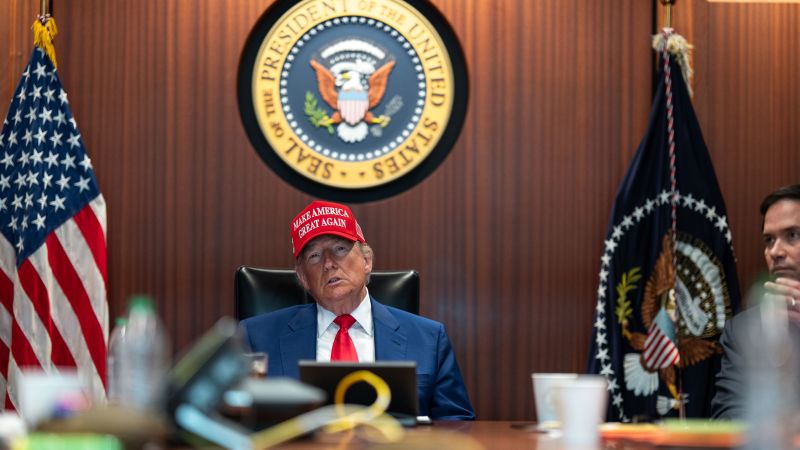
WASHINGTON, D.C. – President Donald Trump’s decision to bomb Iran’s nuclear facilities has reignited a fierce debate over constitutional powers, testing the limits of presidential authority in military actions without congressional approval.
Immediate Impact on U.S. Foreign Policy
The Trump administration asserts that the president acted within his Article II powers, which allow him to direct military forces to protect American interests abroad. Senior officials, including those from the White House counsel’s office and the Justice Department, have supported this interpretation, citing memos from the DOJ’s Office of Legal Counsel used in past administrations.
“The president is clearly well within his Article II powers here,” a former senior U.S. official told CNN. “End of story.”
Key Details Emerge
However, many legal experts and lawmakers from both parties disagree, pointing out that the Constitution clearly states only Congress can declare war. They highlight the absence of a law similar to the Iraq War-era Authorization for Use of Military Force, and question the lack of an imminent threat to the U.S.
Ilya Somin, a law professor at George Mason University, argues that the scale of the action suggests it should be considered a war, requiring congressional authorization. “The War Powers Act requires advance consultation with Congress, ‘whenever possible,’ before entering U.S. troops into hostilities,” Somin noted.
Historical Context and Legal Precedents
In 1973, the War Powers Resolution was enacted to limit presidential military actions following the Vietnam War. Despite this, presidents have often bypassed Congress, citing Article II powers for military actions in Panama, Libya, and Syria.
“The commander in chief can take actions to protect American interests around the world,” John Bolton, a former Trump national security adviser, told CNN.
Expert Analysis
Chris Anders from the American Civil Liberties Union emphasized that the president’s powers are constitutionally enumerated, but he questioned whether the bombing of long-standing facilities in Iran met the criteria for repelling a sudden attack on the U.S.
Stephen Vladeck, a CNN legal analyst, highlighted that historically, Congress has been the only meaningful check on presidential war powers abuses. However, he noted that Congress has not always taken its constitutional responsibilities seriously.
Regional Implications and Future Steps
If the conflict with Iran extends, the Trump administration may need to seek congressional approval, a senior Justice Department official acknowledged. Meanwhile, bipartisan concerns persist, with lawmakers like Rep. Thomas Massie and Sen. Tim Kaine pushing for a war powers resolution to reassert congressional authority.
“We are in yellowcake uranium-land,” a former national security official said, referencing past intelligence failures. “Congress should be asking questions about what intelligence and legal findings were used before this escalatory action.”
What Comes Next?
Massie and Rep. Ro Khanna’s resolution seeks to ensure Congress has a say in military actions, with Sen. Chuck Schumer advocating for a Senate vote. The debate underscores the need for a national discussion on the U.S.’s military engagements and the balance of power between the executive and legislative branches.
Anders suggested public hearings to scrutinize the administration’s justifications and proposed restricting funds for military actions without congressional approval. “That is part of the genius of the way the Constitution was set up,” Anders remarked.
CNN’s Zachary Wolf contributed to this report.






